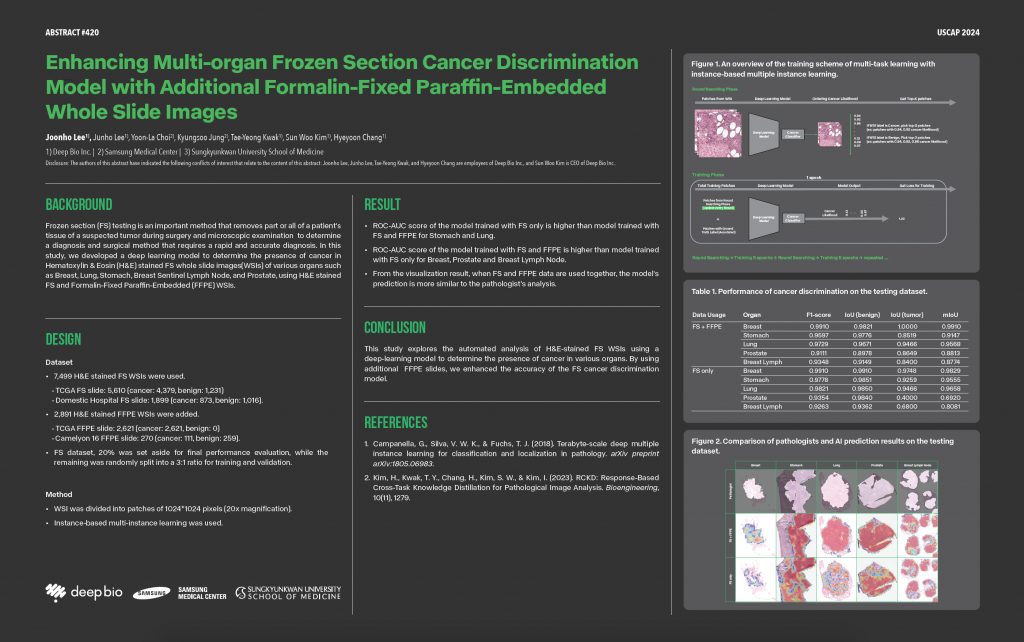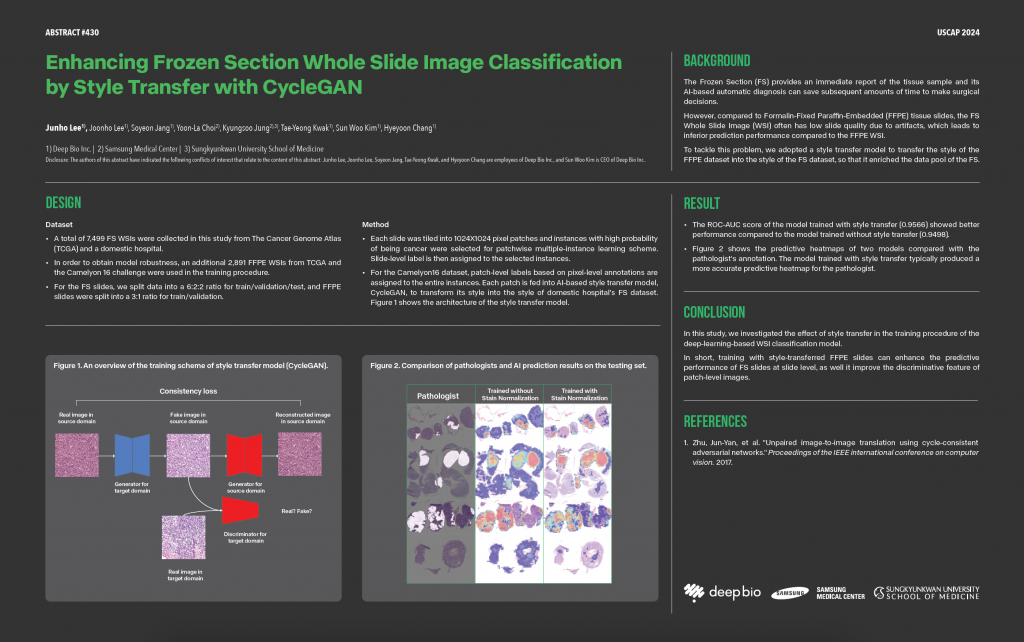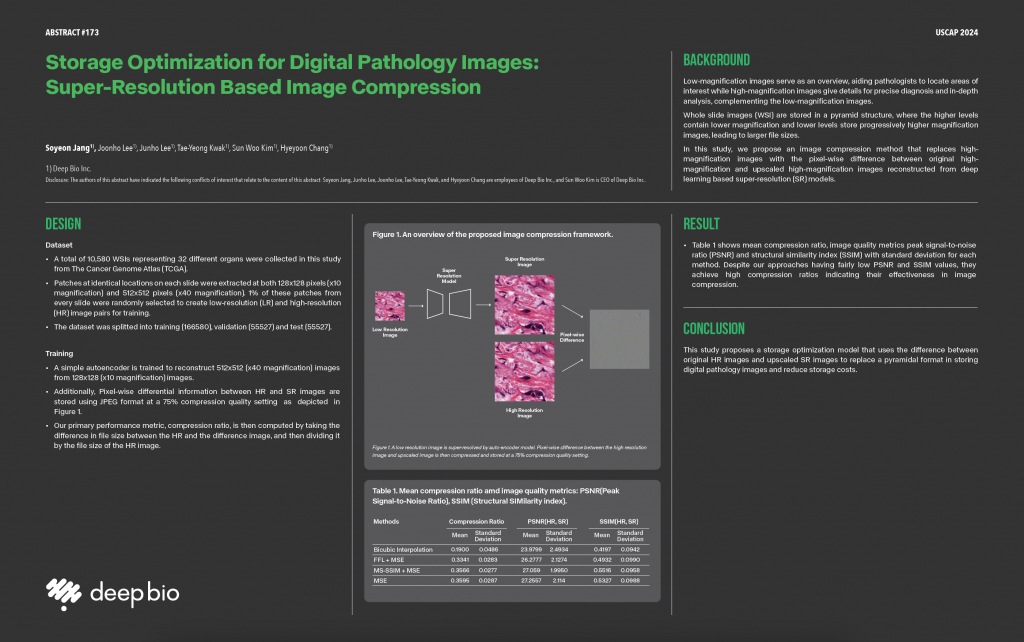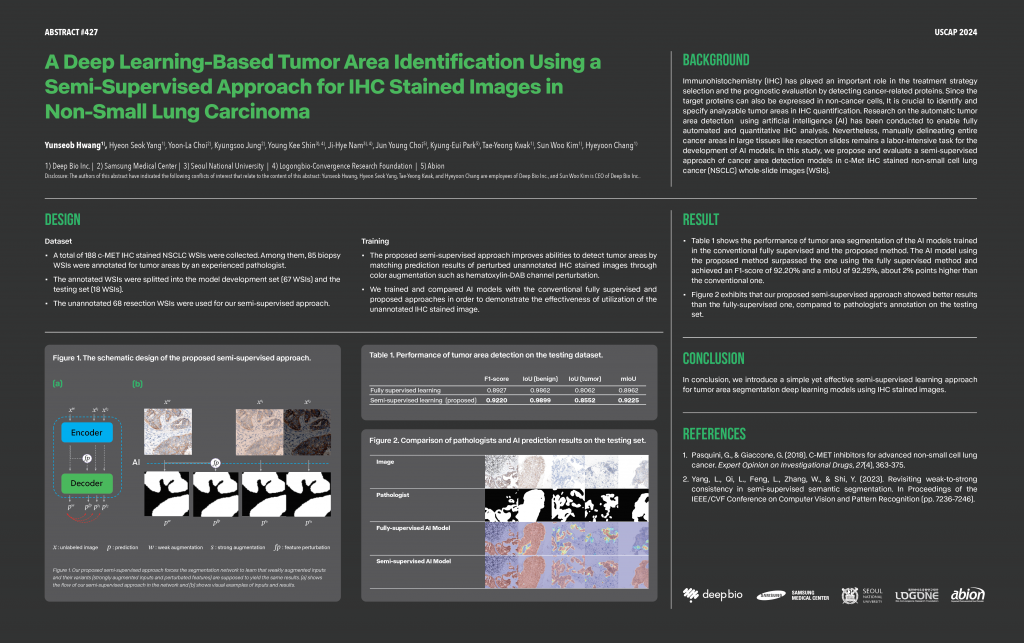Three posters will be presented at the AACR Annual Meeting 2024 to spotlight Deep Bio’s pioneering research and advancements in AI within digital pathology.
SEOUL, SOUTH KOREA, March 28, 2024
Deep Bio, a frontrunner in AI-powered cancer diagnostics, will unveil three distinct research findings at the poster sessions during the American Association for Cancer Research (AACR) Annual Meeting, scheduled for April 5-10, 2024, in San Diego, CA. These results validate Deep Bio’s advancements in AI-driven pathology, showcasing how novel AI techniques amplify the company’s proficiency across a spectrum of tissue and cancer types
Sun Woo Kim, CEO of Deep Bio, said, “I am proud to see our research findings being presented at the American Association for Cancer Research (AACR) for the third consecutive year, as we integrate AI into diagnostic pathology to improve pathology workflow and patient care.”
Innovative Research Highlights at AACR:
Poster Presentation: Semi-Automated Ki-67 Index Assessment Using Top-k Hotspot Recommendation in Ki-67 IHC Stained WSIs
1. Session Date & Time: Monday, April 8, 2024, from 9 a.m. to 12:30 p.m.
2. Abstract #: 2308
3. Poster #: 19
4. Poster session: Liquid Biopsy and Precision Oncology
5. Lead Author: Hyeon Seok Yang
6. Presenter: Hyeon Seok Yang
7. Overview: This research uses deep learning and image analysis to evaluate cell analysis and top-K hotspot recommendations. The study was performed on Ki-67 IHC-stained WSIs and compared with the pathologist’s Ki-67 score.
Poster Presentation: Enhancing Multi-organ Frozen Section Cancer Discrimination Model by Sharing Cancer Discrimination and Organ Classification Task
1. Session Date & Time: Tuesday, April 9, 2024, from 9 a.m. to 12:30 p.m.
2. Abstract #: 4916
3. Poster #: 12
4. Poster session: Artificial Intelligence and Machine/Deep Learning 3
5. Lead Author: Joonho Lee
6. Presenter: Joonyeong Cho
7. Overview: This research explores the automated analysis of H&E-stained FS WSIs using deep learning to discriminate cancer and classify organs
Poster Presentation: Morphological Feature Discrepancies in Wild-type vs. BRCA1/BRCA2 Mutated High-grade Serious Ovarian Cancer
1. Session Date & Time: Tuesday, April 9, 2024, from 9 a.m. to 12:30 p.m.
2. Abstract #: 4913
3. Poster #: 9
4. Poster session: Artificial Intelligence and Machine/Deep Learning 3
5. Lead Author: JaeHeon Lee
6. Presenter: Hyunil Kim
7. Overview: This research illustrates significant morphological discrepancies between WT and BRCA1/BRCA2 mutated HGSOC cells, highlighting the impact of these genetic mutations on cell size, shape, and texture.
About Deep Bio
Deep Bio is an AI healthcare company dedicated to advancing the field of cancer pathology. Focusing on deep learning, the company develops cutting-edge In Vitro Diagnostic Software as Medical Devices (IVD SaMDs) to empower pathologists and medical professionals with state-of-the-art tools for more accurate cancer diagnosis and prognosis.
For more information, visit the website: www.deepbio.co.kr.





